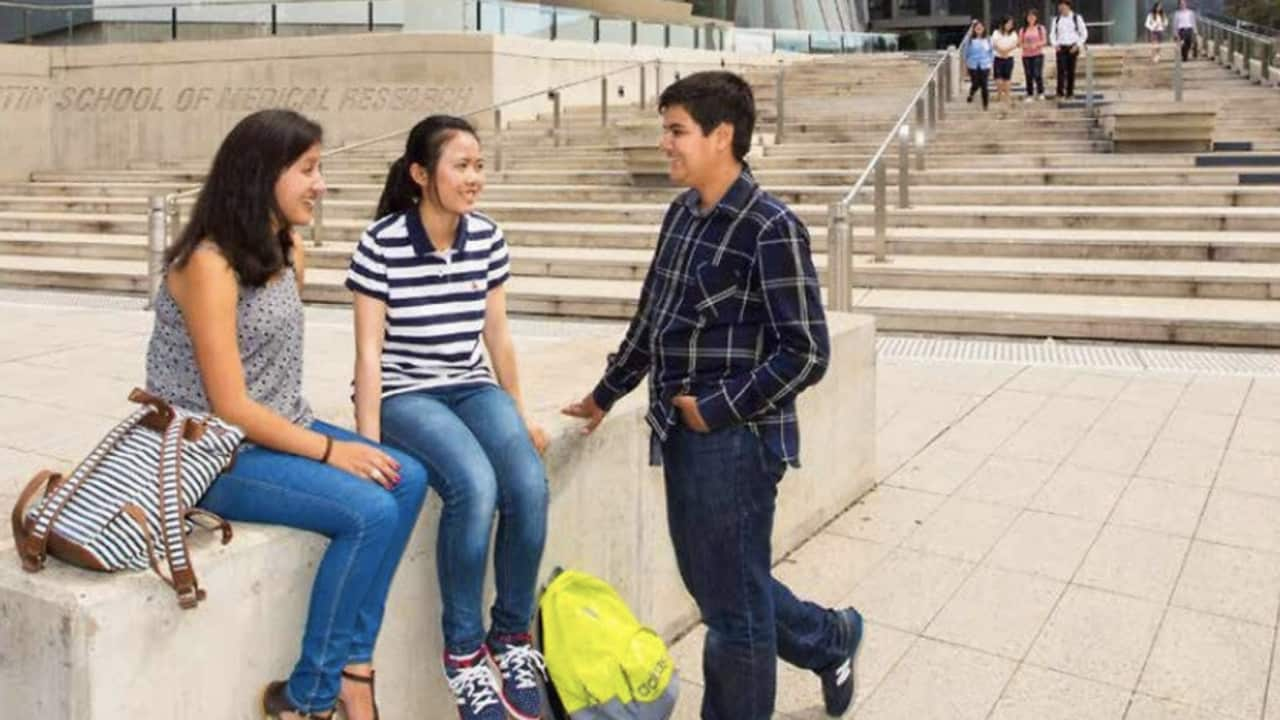Like all international students, Andres Puerto came to Australia to learn and get ahead.
His plan was to stay six months but he soon fell in love with the country and has lived in Sydney for more than three years.
The 27-year-old from Colombia is now completing a Master of Business Information Systems at Torrens University Australia, a private university which opened in 2013.
For two years, Andres worked at a cafe and bookshop owned by the same businessman but he lost that job in 2019. When COVID-19 hit, he turned to the only form of assistance allowed by the federal government for temporary visa holders; early access to his superannuation.
But Andres discovered the $3,500 he was owed had never been paid by his boss.  "I tried to contact him, I sent him messages, emails, calls, and he never replied,” he told SBS News.
"I tried to contact him, I sent him messages, emails, calls, and he never replied,” he told SBS News.

International students on temporary visas aren't eligible for JobKeeper or JobSeeker. Source: AAP
“And just some months ago he said to me, ‘I am bankrupt and I need to sort it out so I will pay you later’."
He still hasn't received his unpaid superannuation.
Temporary visa holders aren't eligible for any pandemic-related government support such as JobKeeper or JobSeeker.
In April, the Federal government announced it would allow temporary visa holders whose income had been affected by the pandemic to access up to $10,000 of their superannuation before the end of this financial year.
It is something Andres says would have helped greatly.
"I would like to get my money back, but beyond that, I want this not to happen to anyone else because I know how it feels and I know if a student is in a vulnerable situation and he has worked for that money and that money was ripped off, it feels really bad," he said.
It is not an isolated incident.
Another international student who does not want to be identified has provided payslips to SBS News showing his super had been paid - but in reality, it never was.
"Each payslip shows that they were paying me super but when I went into my account of super there was nothing," he said.
"It's not fair, it's not fair for me or for other international students as well."
Sharmilla Bargon from the Redfern Legal Centre says they have seen an increase in international students seeking their help around unpaid superannuation.
"We see that there's absolutely widescale exploitation of employees in this way. It's really common that if a business is struggling that superannuation will be one of the first payments that they stop making," she said. Normally, international students can only access their superannuation once they permanently leave the country, at which point it's usually too late to reclaim unpaid payments.
Normally, international students can only access their superannuation once they permanently leave the country, at which point it's usually too late to reclaim unpaid payments.

Sharmilla Bargon from Redfern Legal Centre says requests for help from international students have increased. Source: SBS News
But even for those who have tried, Ms Bargon says, "it's a long and difficult path and we have had varied success with it".
An Australian Taxation Office spokesperson says the non-payment of superannuation is taken very seriously.
"In the first six months of 2019–20, we contacted over 9,000 employers and raised $406.5 million in liabilities as a result of our compliance action," they said.
International students are also being urged to check their payslips, contact their super fund and understand their rights.
Andres says it can be hard to access information given the initial language barriers for some international students, but he says it's worth it.
"It shouldn't happen to anyone else that their employer takes advantage of these students just because they don't know their rights."
Multilingual app launched last year and has been made available for free to 50,000 international students in New South Wales.
The app provides personalised legal information about topics including employment and superannuation.
Ms Bargon says the app has seen a "dramatic increase in people making enquiries about tenancy and employment law" this year.
So far, the Australian Taxation Office says $975 million dollars worth of superannuation has been released to temporary visa holders.
It is not known how much has gone to international students, but of the total, $220 million has been released to those aged between 20 and 25 years old, the most common age range for international students in Australia.












